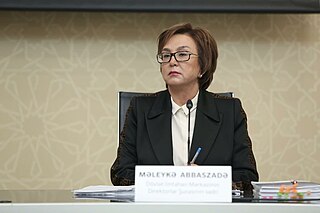 W
WMaleyka Mehdi qizi Abbaszadeh is the Chair of the State Students Admission Commission of Azerbaijan.
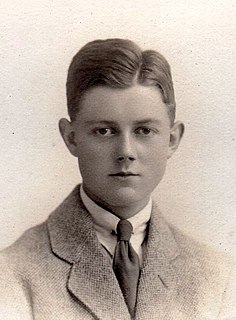 W
WW. Ross Ashby was an English psychiatrist and a pioneer in cybernetics, the study of the science of communications and automatic control systems in both machines and living things. His first name was not used: he was known as Ross Ashby.
 W
WGregory Bateson was an English anthropologist, social scientist, linguist, visual anthropologist, semiotician, and cyberneticist whose work intersected that of many other fields. His writings include Steps to an Ecology of Mind (1972) and Mind and Nature (1979).
 W
WStafford Beer was a British theorist, consultant and professor at the Manchester Business School. He is best known for his work in the fields of operational research and management cybernetics.
 W
WHarold Stephen Black was an American electrical engineer, who revolutionized the field of applied electronics by discovering the negative feedback amplifier in 1927. To some, his discovery is considered the most important breakthrough of the twentieth century in the field of electronics, since it has a wide area of application. This is because all electronic devices are inherently nonlinear, but they can be made substantially linear with the application of negative feedback. Negative feedback works by sacrificing gain for higher linearity. By sacrificing gain, it also has an additional effect of increasing the bandwidth of the amplifier. However, a negative feedback amplifier can be unstable such that it may oscillate. Once the stability problem is solved, the negative feedback amplifier is extremely useful in the field of electronics. Black published a famous paper, Stabilized feedback amplifiers, in 1934.
 W
WValentino Braitenberg was an Italian neuroscientist and cyberneticist. He was former director at the Max Planck Institute for Biological Cybernetics in Tübingen, Germany.
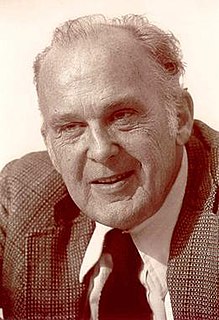 W
WDonald Thomas Campbell was an American social scientist. He is noted for his work in methodology. He coined the term "evolutionary epistemology" and developed a selectionist theory of human creativity. A Review of General Psychology survey, published in 2002, ranked Campbell as the 33rd most cited psychologist of the 20th century.
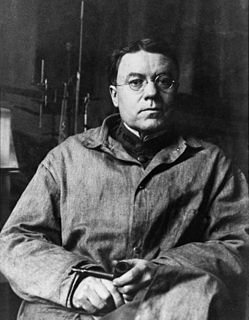 W
WWalter Bradford Cannon was an American physiologist, professor and chairman of the Department of Physiology at Harvard Medical School. He coined the term "fight or flight response", and he expanded on Claude Bernard's concept of homeostasis. He popularized his theories in his book The Wisdom of the Body, first published in 1932.
 W
WAlexander (Aleco) Christakis is a Greek American social scientist, systems scientist and cyberneticist, former faculty member of several Universities, organizational consultant and member of the Club of Rome, known for his "study and design of social systems".
 W
WManfred Edward Clynes was an Austrian-born scientist, inventor, and musician. He is best known for his innovations and discoveries in the interpretation of music, and for his contributions to the study of biological systems and neurophysiology.
 W
WHeinz von Foerster was an Austrian American scientist combining physics and philosophy, and widely attributed as the originator of Second-order cybernetics. He was twice a Guggenheim fellow and also was a fellow of the American Association for the Advancement of Science, 1980. He is well known for his 1960 Doomsday equation formula published in Science predicting future population growth.
 W
WVictor Mikhailovich Glushkov was a Soviet mathematician, the founding father of information technology in the Soviet Union and one of the founding fathers of Soviet cybernetics.
 W
WBen Goertzel is an artificial intelligence researcher.
 W
WEdward René David Goldsmith, widely known as Teddy Goldsmith, was an Anglo-French environmentalist, writer and philosopher.
 W
WPetro Grigorenko or Petro Hryhorovych Hryhorenko was a high-ranking Soviet Army commander of Ukrainian descent, who in his fifties became a dissident and a writer, one of the founders of the human rights movement in the Soviet Union.
 W
WCharles Hampden-Turner is a British management philosopher, and Senior Research Associate at the Judge Business School at the University of Cambridge since 1990. He is the creator of Dilemma Theory and co-founder and Director of Research and Development at the Trompenaars-Hampden-Turner Group, in Amsterdam.
 W
WNancy Katherine Hayles is an American postmodern literary critic, most notable for her contribution to the fields of literature and science, electronic literature, and American literature. She is professor and Director of Graduate Studies in the Program in Literature at Duke University.
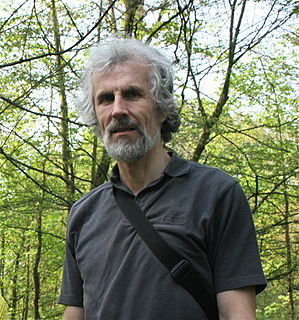 W
WFrancis Paul Heylighen is a Belgian cyberneticist investigating the emergence and evolution of intelligent organization. He presently works as a research professor at the Vrije Universiteit Brussel, where he directs the transdisciplinary research group on "Evolution, Complexity and Cognition" and the Global Brain Institute. He is best known for his work on the Principia Cybernetica Project, his model of the Internet as a global brain, and his contributions to the theories of memetics and self-organization. He is also known, albeit to a lesser extent, for his work on gifted people and their problems.
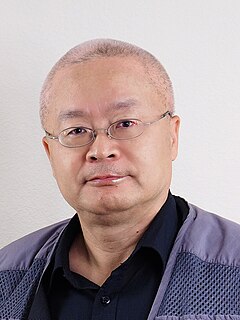 W
WJason Jixuan Hu, is a Chinese American cyberneticist, independent scholar and managing director of WINTOP Organizational Learning Laboratory. He is noted for his work on "cognitive capacity in human communication, conflict resolution and cooperation solicitation," and on view on distance education in America.
 W
WSabina Jeschke is a German university professor for information sciences in mechanical engineering at the RWTH Aachen University. As of 10 November 2017, she was named member of the management board of Deutschen Bahn AG for digitalization and technology. She is also the director of the Cybernetics Lab IMA/ZLW & IfU. In the summer semester of 2017, she is on sabbatical leave to develop her research in the area of artificial consciousness, and is involved in building a think tank "Strong Artificial Intelligence" at the Volvo Car Corporation in Göteborg. Since May 2015, Jeschke has been a member of the supervisory board of Körber AG, since April 2012 chairman of the board of VDI Aachen
 W
WCliff Joslyn is an American cognitive scientist, cyberneticist, and currently Chief Scientist for Knowledge Sciences at the Pacific Northwest National Laboratory in Seattle, Washington, USA.
 W
WLouis Hirsch Kauffman is an American mathematician, topologist, and professor of Mathematics in the Department of Mathematics, Statistics, and Computer science at the University of Illinois at Chicago. He is known for the introduction and development of the bracket polynomial and the Kauffman polynomial.
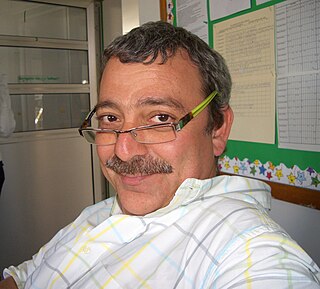 W
WYiannis Laouris is a Greek Cypriot entrepreneur, neurophysiologist, and systems scientist. Trained in the U.S. and Germany, he has become known for his socially responsible work and scientific contributions in the fields of peace and development through the application of modern technology and the science of structured dialogic design.
 W
WAlexander Yakovlevich Lerner was a scientist and Soviet refusenik.
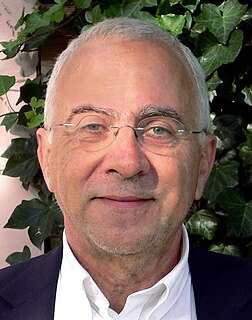 W
WLouis André (Loet) Leydesdorff (born 21 August 1948 in Djakarta is a Dutch sociologist, cyberneticist and Professor in the Dynamics of Scientific Communication and Technological Innovation at the University of Amsterdam. He is known for his work in the sociology of communication and innovation, especially for his Triple helix model of innovation developed with Henry Etzkowitz in the 1990s.
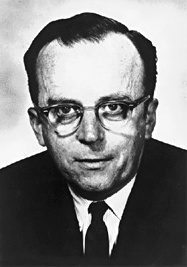 W
WJoseph Carl Robnett Licklider, known simply as J. C. R. or "Lick", was an American psychologist and computer scientist who is considered among prominent figures in computer science development and general computing history.
 W
WHumberto Maturana is a Chilean biologist turned philosopher. Many consider him a member of a group of second-order cybernetics theoreticians such as Heinz von Foerster, Gordon Pask, Herbert Brün and Ernst von Glasersfeld.
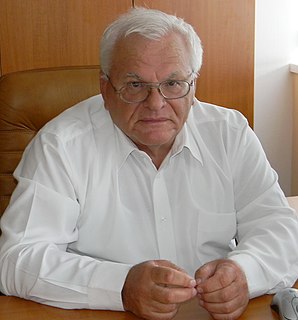 W
WAnatoly Alekseevich Morozov is a Ukrainian scientist in the field of cybernetics. He is a Full Member of the National Academy of Sciences of Ukraine, a Full member (Academician) of the International Academy of Information Science and the Academy of Technological Sciences of Russia and the President of the Academy of Technological Sciences of Ukraine.
 W
WŞtefan Odobleja was a Romanian scientist considered to be one of the precursors of cybernetics. His major work, Psychologie consonantiste helped generated many of the major themes of cybernetics regarding cybernetics and systems thinking nine years before Norbert Wiener.
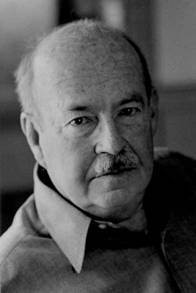 W
WTalcott Parsons was an American sociologist of the classical tradition, best known for his social action theory and structural functionalism. Parsons is considered one of the most influential figures in sociology in the 20th century. After earning a PhD in economics, he served on the faculty at Harvard University from 1927 to 1929. In 1930, he was among the first professors in its new sociology department. Later, he was instrumental in the establishment of the Department of Social Relations at Harvard.
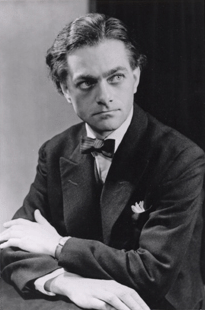 W
WAndrew Gordon Speedie Pask was an English author, inventor, educational theorist, cybernetician and psychologist who made significant contributions to cybernetics, instructional psychology, experimental epistemology and educational technology. Pask first learned about cybernetics in the early 1950s when the originator of the subject, Norbert Wiener, spoke at Cambridge University, where Pask was an undergraduate student. Pask was asked to be of assistance during Wiener's talk.
 W
WQian Xuesen, or Hsue-Shen Tsien, was a Chinese mathematician, cyberneticist, aerospace engineer, and physicist who made significant contributions to the field of aerodynamics and established engineering cybernetics. Recruited from MIT, he joined Theodore von Kármán's group at Caltech. During WWII, he was involved in the Manhattan Project, which ultimately led to the successful development of the first atomic bomb in America. Later on, he would eventually return to China, where he would make important contributions to China's missile and space program.
 W
WWerner E. Reichardt was a German physicist and biologist who helped to establish the field of biological cybernetics. He co-founded the Max Planck Institute for Biological Cybernetics, and the Journal of Biological Cybernetics.
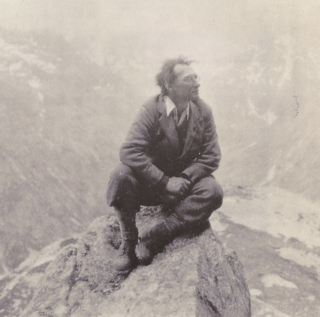 W
WIvor Armstrong Richards, known as I. A. Richards, was an English educator, literary critic, and rhetorician. His work contributed to the foundations of the New Criticism, a formalist movement in literary theory which emphasized the close reading of a literary text, especially poetry, in an effort to discover how a work of literature functions as a self-contained and self-referential æsthetic object.
 W
WArturo Rosenblueth Stearns was a Mexican researcher, physician and physiologist, who is known as one of the pioneers of cybernetics.
 W
WPeter Heinrich Schwartze is a German neurophysiologist, systems scientist and cyberneticist well known in the ex-German Democratic Republic. Schwartze graduated the medical University in Leipzig, Germany in 1957 and specialized in Neurophysiology. He studied and worked at the universities of Rostock, Greifswald and Leipzig. He became Doctor Habilitatus of the University Leipzig, Germany in 1968 and Professor of Pathophysiology in 1978 and served as the Director of the Carl Ludwig Institute of Physiology between 1980 and 1992 as successor of Hans Drischel.
 W
WKarl W. Steinbuch was a German computer scientist, cyberneticist, and electrical engineer. He was an early and influential researcher of German computer science, and was the developer of the Lernmatrix, an early implementation of artificial neural networks. Steinbuch also wrote about the societal implications of modern media.
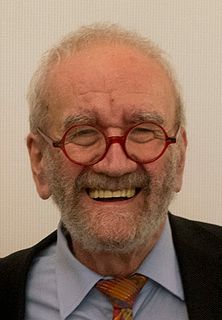 W
WRobert Trappl is an Austrian scientist and head of the Austrian Research Institute for Artificial Intelligence in Vienna, which was founded in 1984. He is known for his work in the field of cybernetics and artificial intelligence.
 W
WValentin Fyodorovich Turchin was a Soviet and American physicist cybernetician and computer scientist. He developed the Refal programming language, the theory of metasystem transitions and the notion of supercompilation. He was as a pioneer in artificial intelligence and a proponent of the global brain hypothesis.
 W
WJakob Johann Freiherr von Uexküll was a Baltic German biologist who worked in the fields of muscular physiology, animal behaviour studies, and the cybernetics of life. However, his most notable contribution is the notion of Umwelt, used by semiotician Thomas Sebeok and philosopher Martin Heidegger. His works established biosemiotics as a field of research.
 W
WStuart Anspach Umpleby is an American cybernetician and professor in the Department of Management and Director of the Research Program in Social and Organizational Learning in the School of Business at the George Washington University.
 W
WFrancisco Javier Varela García was a Chilean biologist, philosopher, cybernetician, and neuroscientist who, together with his mentor Humberto Maturana, is best known for introducing the concept of autopoiesis to biology, and for co-founding the Mind and Life Institute to promote dialog between science and Buddhism.
 W
WWilliam Grey Walter was an American-born British neurophysiologist, cybernetician and robotician.
 W
WKevin Warwick FIET, FCGI, is a British engineer and Deputy Vice-Chancellor (Research) at Coventry University in the United Kingdom. He is known for his studies on direct interfaces between computer systems and the human nervous system, and has also done research concerning robotics.
 W
WNorbert Wiener was an American mathematician and philosopher. He was a professor of mathematics at the Massachusetts Institute of Technology (MIT). A child prodigy, Wiener later became an early researcher in stochastic and mathematical noise processes, contributing work relevant to electronic engineering, electronic communication, and control systems.
 W
WRobert Coldwell Wood was an American political scientist, academic and government administrator, and professor of political science at MIT. From 1965 to 1969, Wood served as the Under Secretary of the Department of Housing and Urban Development under President Lyndon B. Johnson, and for two weeks as the Secretary at the end of the Johnson Administration.